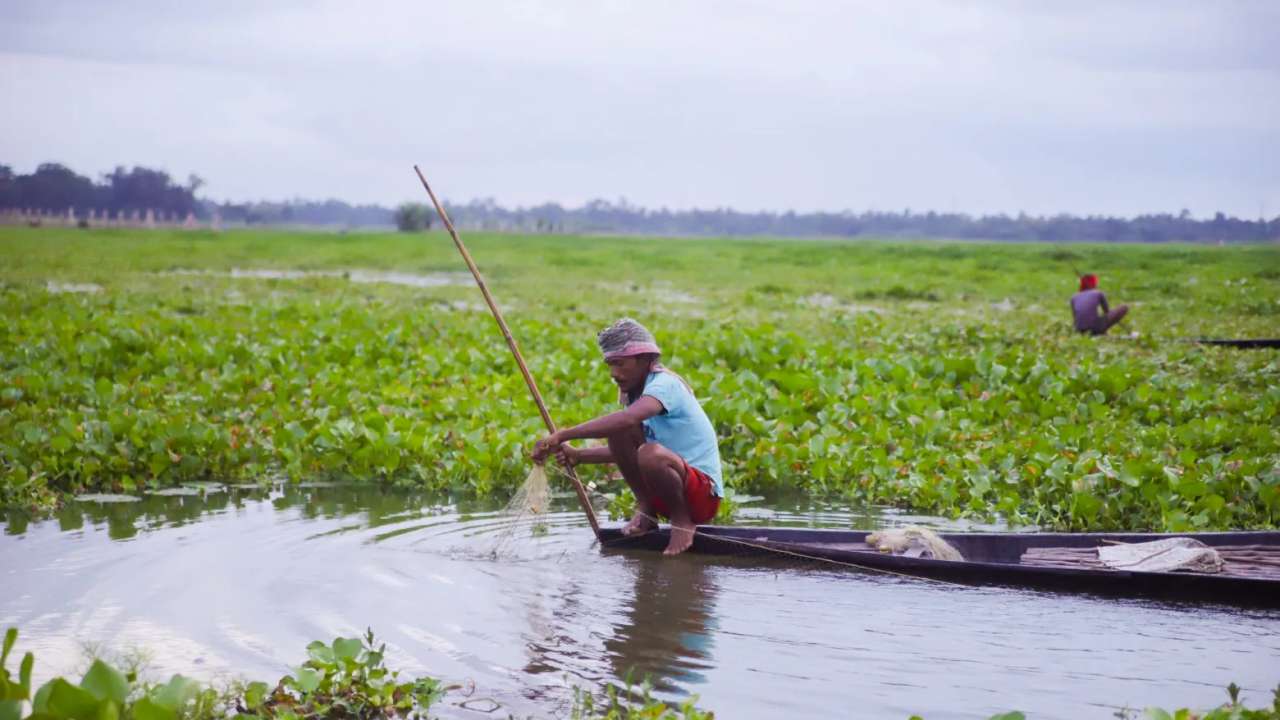Ethiopian villagers fight invasive weed by turning it into clean energy

Ethiopia is turning a major environmental threat into a clean energy solution by converting invasive water hyacinth into biogas.
For years, the fast-growing weed has spread across Lake Tana, clogging waters, destroying fishing areas, and harming the livelihoods of local communities.
Fisherman Fentie Wabi, who relied on the lake to feed his family, said the weed made it nearly impossible to work.
“As the weed expanded, we couldn’t ride our boats. It damaged our nets, and we couldn’t fish in the areas we used to,” he told SciDev.
Initial community efforts to remove the weed by hand failed, as it kept returning. But an experimental biogas project led by researchers introduced a new way to deal with the problem by using the plant as fuel.
The process involves collecting the weed and mixing it with animal dung to produce biogas through natural fermentation.
The gas is then used for cooking and lighting, while the leftover material becomes organic fertiliser.
Wabi, one of the first to join the project, said his family now uses the gas daily and sees better crop yields from the natural fertiliser.
The innovation was led by Yezbie Kassa, a fisheries researcher at the University of Gondar. She witnessed the environmental damage caused by the weed during her PhD studies and wanted to find a way to turn the problem into an opportunity.
“This invasive plant doesn’t just damage the lake ecosystem, it threatens the livelihoods of communities who depend on these waters for food, income, and clean water,” she said.
Although only a few homes have benefited from the pilot project so far, it has drawn national attention.
Local officials and researchers hope that with proper government support, the model can be scaled up across other affected regions in Ethiopia.
Experts say the idea has potential beyond energy.
The same plant could be used to make handicrafts or even animal feed, offering more economic opportunities.
But for now, the focus remains on biogas, especially in remote areas where energy is expensive and hard to access.
This story is written and edited by the Global South World team, you can contact us here.